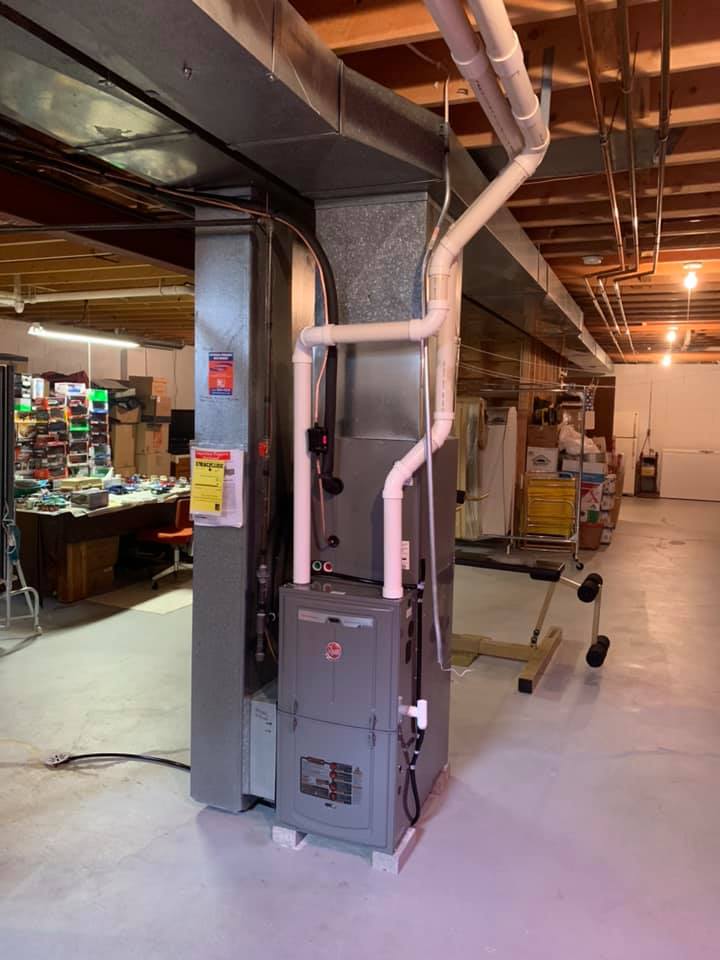Reliable furnace repair services for homes in need of quick heating solutions
Reliable furnace repair services for homes in need of quick heating solutions
Blog Article
The Ultimate Guide to Furnace Installment for a Cozy Home
Heater setup is an important facet of preserving a comfortable home atmosphere, particularly throughout the chillier months. As you consider these elements, the question stays: what steps can you take to guarantee your heating system offers you well for years to come?
Sorts Of Furnaces

Gas heaters are the most typical choice as a result of their performance and lower functional expenses. They utilize gas or gas, providing fast heating and regular performance, making them optimal for colder environments.
Electric heating systems, while usually much easier to set up and maintain, often tend to have higher operational prices. They are often preferred in areas where gas solution is unavailable or for homes with existing electrical infrastructure.
Oil heating systems, though much less usual today, stay a sensible alternative in specific areas. They shed home heating oil, which can be advantageous during chillier months, but their reliance on oil distribution poses possible difficulties.
In addition, there are high-efficiency designs readily available across these types, which can significantly reduce power intake and energy expenses - furnace installation. Eventually, recognizing these furnace types will assist property owners choose a system that lines up with their home heating requires, budget plan, and power preferences
Choosing the Right Size
Selecting the suitable dimension for a heating system is crucial to making sure ideal efficiency and power effectiveness. An undersized heater will have a hard time to keep comfy temperature levels during the cool months, bring about raised wear and tear, greater energy expenses, and possible system failing. On the other hand, an oversized heater might cycle on and off as well often, leading to ineffective heating and uneven temperature level distribution within the home.
To determine the correct heating system dimension, a calculation called the Guidebook J tons calculation need to be executed. This procedure assesses various variables, including the square footage of the home, insulation degrees, window sizes, and regional climate problems. This thorough analysis makes certain that the heating system satisfies the particular home heating demands of the room.

Installment Refine Introduction
In terms of materials, you will certainly need ductwork, insulation, and securing tape to make sure optimum air movement and energy efficiency - furnace installation. It is additionally crucial to have a new furnace filter accessible, together with venting products, such as PVC pipe or steel flue, depending upon the type of heater being set up
Safety devices, including handwear covers, goggles, and a face mask, is additionally vital to protect versus dust and debris throughout setup. Having all these devices and materials conveniently available not just improves the procedure however additionally enhances the safety and security and effectiveness of the heater installation.
Upkeep Tips for Longevity
To make sure the long life of your heating system, it is essential to carry out a normal maintenance routine that addresses essential parts of the system. Start by replacing or cleansing the air filter every one to three months, as a stopped up filter can restrict air flow and reduce effectiveness. In addition, inspect and clean up the blower setting up to stop dust build-up that can prevent efficiency.
Next, check the thermostat setups and rectify if necessary to guarantee precise temperature level law. Inspect the ductwork for leaks or obstructions, as this can cause power loss and irregular heating. On a regular basis oil the electric motor and bearings click here now according to the manufacturer's recommendations to reduce deterioration.
Expert examinations need to occur annually, where a qualified specialist can evaluate the heating system's general condition, check for gas leaks, and guarantee that security functions are working properly. Finally, consider installing a programmable thermostat to optimize power use and keep constant home temperature levels. By adopting these maintenance techniques, you can boost your heating system's effectiveness, prolong its lifespan, and inevitably appreciate a comfy and comfy home environment.
Conclusion

Report this page